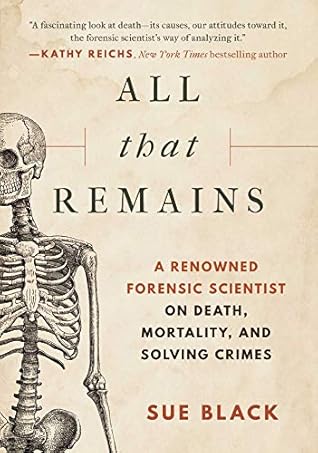More on this book
Community
Kindle Notes & Highlights
by
Sue Black
Read between
December 3 - December 20, 2022
The tallest men are the Dutch, who are on average 6ft (1.83m), and the shortest are from East Timor, at 5ft 3ins (1.6m).
Latvia has the tallest women, pipping the Dutch ladies to the post at 5ft 7ins (1.70m), and Guatemala the shortest at 4ft 11ins (1.5m).
As well as the rarer impact of growth disorders, more commonplace factors such as nutrition, altitude, disease burden, growth variations, alcohol, nicotine, birth weight and hormones will all affect how tall we will be as an adult.
Once we pass forty we lose about a centimetre every decade and, after seventy, a further three to eight centimetres.
With age, cartilage thins and some of the joint spaces collapse. Clinical conditions such as arthritis and osteoporosis will also alter the bones and joints and reduce overall height.
What genetics cannot tell us with any reliability is the difference between a man from China and a man from Korea, or a British woman and one from Germany. Therefore it is of no value whatsoever in assisting us with assessing the ancestry of a person descended, for example, from an Indian maternal grandfather, English maternal grandmother, Nigerian paternal grandfather and Japanese paternal grandmother.
It is only in relatively recent times that desecration of the human form by dismemberment has come to be seen as repugnant and synonymous with criminality, usually murder.
‘More inhumanity has been done by man himself than any other of nature’s causes’ Baron Samuel von Pufendorf political philosopher (1632–94)
Once such an idea takes root in our minds, we are inclined to view subsequent similar events as supporting such a misconceived theory – an example of a well-known forensic problem called confirmation bias, in other words, a tendency to seek out evidence that fits a pre-existing hypothesis.
The war in a far-off land or activities of the despotic military regime that preoccupied our attention last week will inevitably fade from the news banners on our screens as we, the news consumers, move on to the latest celebrity revelation, reality TV scandal or political blunder. Until something, somewhere happens that changes our perspective. Suddenly, a story becomes very real and very personal and, before you know it, has come to dominate the direction of your life.
One rescuer remembered: ‘I was helping to dig the children out when I heard a photographer tell a child to cry for her dead friends, so that he could get a good picture – that taught me silence.’ Revisiting that testimony, I was reminded of my time in Kosovo.
If forensic experts allowed themselves to dwell on the immensity of human pain or on the gruesome spectacles we encounter, we would be in-effective scientists. We cannot take on the suffering of the dead. That is not our job, and if we don’t do our job, then we help nobody.
Approximately 10 per cent of all legal cases involving surgical malpractice are believed to be due to ignorance of anatomical variation.
In 2013, we were honoured to be awarded the rare and prestigious Queen’s Anniversary Prize for Excellence in Higher and Further Education for our research in human anatomy and forensic anthropology.
A research study on the eunuchs of the Imperial Court of the Chosun Dynasty (1392–1910) in Korea showed that they lived on average twenty years longer than non-castrated men. Interestingly, though, this was only true if their testes were removed before the age of fifteen. For individuals sterilised after the onset of puberty, and therefore after the biochemical influences of testosterone had kicked in, the differential was less striking. But it would be somewhat extreme, not to mention significant for the future of the human race, if men were to try to gain themselves another twenty years by
...more
As the Roman philosopher Seneca said: ‘The wise man will live as long as he ought, not as long as he can.’


